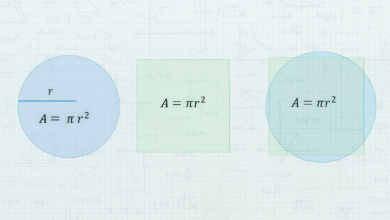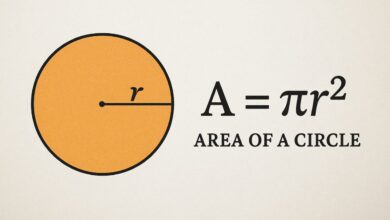Search on faspeinfo: Your Amazing Guide to Finding Information Deep and Easy! (79 characters)

🌟 Table of Contents
- What is Search on Faspeinfo?
- Why is ‘Deep Search’ Important?
- Lesson 1: Use Exact Words for Great Search Results
- Lesson 2: Simple Tricks to Find Specific Files
- Lesson 3: Looking Inside One Website Only
- Lesson 4: How to Ask a Question the Smart Way
- Lesson 5: What is the Deep Web?
- Lesson 6: Finding Old and Hidden Pages
- Lesson 7: Being Safe While You Search
- Lesson 8: Putting Keywords in Your Plan
- Lesson 9: The Power of Connecting Ideas
- Lesson 10: Using Special Words to Filter
- Lesson 11: Being Patient When You Search
- Lesson 12: How FASPE Helps People Learn
- Lesson 13: Search on Faspeinfo and Good Choices
- Lesson 14: Checking Your Facts is Very Important
- Lesson 15: Writing Down What You Find
- Lesson 16: Exploring Academic Papers
- Lesson 17: Finding the Main Source of a Story
- Lesson 18: Why Different Search Tools Matter
- Lesson 19: Searching for Photos and Videos
- Lesson 20: How to Look for People’s Names
- Lesson 21: Deep Search for Learning History
- Lesson 22: Keeping Your Search Words Simple
- Lesson 23: Reviewing All Your Search Steps
- Conclusion: Start Your Best Search Now!
What is Search on Faspeinfo?
When we talk about a search on faspeinfo, we are really talking about finding information. Think of the internet like a giant library with millions of books! A search engine is like the librarian helping you find what you need. Our goal is to make sure your search is fast, correct, and finds even the hard-to-see facts. This method is called deep search.
Why is ‘Deep Search’ Important?
A simple search only shows you the first few pages, like looking at the top layer of sand at the beach. Deep search is important because it teaches you to dig down for treasure. You learn to use special tools and words so your computer brings back exactly what you want. It helps you get the full picture, not just the easy parts.
Lesson 1: Use Exact Words for Great Search Results
The first step to a great search on faspeinfo is to use quotation marks. If you look for the words big red dog, the search engine finds pages with those three words anywhere. But if you search for “big red dog”, it only finds pages where those three words are right next to each other. This trick makes your search much smarter.
Lesson 2: Simple Tricks to Find Specific Files
Sometimes you need to find a special type of document, like a school report or a map. You can use the word filetype: right before the kind of file you want. For example, if you want a PDF document about space, you type space filetype:pdf. This trick filters out all the regular websites and only shows you the file type you asked for.
Lesson 3: Looking Inside One Website Only
Imagine you love one website, but its own search box isn’t very good. You can ask a big search engine to only look at that one place. Use the word site: and then the website name. For example, if you want to find the word pizza only on Wikipedia, you type pizza site:wikipedia.org. This is a powerful, focused search on faspeinfo method.
Lesson 4: How to Ask a Question the Smart Way
When you want to search, it helps to be very clear about what you do not want. If you are looking for pictures of the planet Mars but keep getting candy bars, you can fix it. Just use the minus sign (–) before the word you want to remove. Typing Mars -candy will help you find the space information more easily.
Lesson 5: What is the Deep Web?
The “Deep Web” sounds like a secret spy movie, but it’s mostly just private stuff. It includes your email inbox, banking pages, and things you need a password for. Regular search engines cannot look at these places because they are private and protected. A true deep search helps you understand that some information is meant to be private.
Lesson 6: Finding Old and Hidden Pages
Sometimes, a great piece of information is taken off the internet, but it might not be gone forever. Tools like the Wayback Machine save old copies of websites. This is like a time machine for the internet! Knowing about these special tools helps you complete a full search on faspeinfo and uncover history.
| Read More Informative Blogs: Level Up Wellness Group |
Lesson 7: Being Safe While You Search
When you do a deep search, you should always be safe. Never click on links that look strange or ask for your private information. Use safe websites that start with https://, which means the connection is secure. Learning good online safety is the most important part of any big search project.
Lesson 8: Putting Keywords in Your Plan
Every good search needs a plan, and that plan starts with keywords. Keywords are the most important words that describe what you are trying to find. Before you start your search on faspeinfo, write down three or four main keywords. This simple step will focus your search and save you lots of time.
Lesson 9: The Power of Connecting Ideas
To connect two different ideas in your search, you can use the word OR (always in capital letters). If you are looking for information on dogs or cats, you type dogs OR cats. The search engine will show you pages that have one or the other. This makes your search wider and helps you find more things.
Lesson 10: Using Special Words to Filter
We already talked about the minus sign to remove things. Another helpful word is AND. If you type trees AND birds, the search engine will only show pages that have both words. This is a very simple and smart way to make your search on faspeinfo results more accurate and specific to your needs.
Lesson 11: Being Patient When You Search
Doing a proper deep search takes more time than a quick look. Be patient! If your first try does not work, try different keywords or use a new search trick. Good information is like a hidden treasure; you must be willing to spend time looking carefully for it. The best answers are often not on the first page.
Lesson 12: How FASPE Helps People Learn
The name FASPE actually stands for a group that helps people learn about making good, moral choices in their jobs. They learn from history to become better, ethical leaders today. Even though your search might be for a school project, learning how to be responsible with the facts you find is important, too.
Lesson 13: Search on Faspeinfo and Good Choices
Being a good searcher means you make good choices about what to believe. Do not just take the first answer as the truth. Ask questions like: Who wrote this? When was it written? Is this person an expert? A successful search on faspeinfo always includes thinking carefully about the source of the facts you find.
Lesson 14: Checking Your Facts is Very Important
A great way to check if a fact is real is to see if many other good websites say the same thing. This is called cross-checking. If you find a surprising fact, try to find it on three different and trusted websites. If all three agree, you can feel much more sure that the information is correct.
Lesson 15: Writing Down What You Find
When you start your deep search, keep a special notebook or a computer file. Write down the website links and the keywords you used. This helps you remember where you found the information and what worked well. It also stops you from looking for the same thing over and over again.
Lesson 16: Exploring Academic Papers
Some of the best and most proven facts are found in academic papers. These are special reports written by scientists and highly educated people. You can often find these by adding words like journal or research paper to your search words. This is a great way to make your search on faspeinfo authoritative.
Lesson 17: Finding the Main Source of a Story
When you read a news story, it often talks about a study or official report. A good deep search skill is to find that original source, not just the news story about it. Look for the name of the group that made the report and search for that name. The main source has the most complete information.
Lesson 18: Why Different Search Tools Matter
Do not always use the same search tool! Different search engines might be better for finding different things. Some are great for pictures, some for news, and some for privacy. Try using a few different search engines to get a wider view and a more thorough search on faspeinfo.
Lesson 19: Searching for Photos and Videos
When you look for pictures, you can sometimes search using a picture instead of words! This is called a reverse image search. You upload a picture, and the search engine finds where else it is used. This is a powerful way to check if a photo is real or where it first came from.
Lesson 20: How to Look for People’s Names
When you are looking for a person, always use their full name inside quotation marks: “Jane A. Smith”. You can also try searching for their name plus the town where they live or their job title. This stops the search from showing you thousands of people who might have the same name.
Lesson 21: Deep Search for Learning History
The skills of a great deep search are perfect for history projects. You can look for old newspaper archives or public records. Use date ranges in your search, like 1950..1960. This tells the search engine to only show results from those ten years, helping you focus on the correct time period.
Lesson 22: Keeping Your Search Words Simple
Even though we are talking about deep search, your main search words should be simple. Avoid using full, long questions. Use key phrases. Instead of where does the sun go at night, try sun movement earth. Simple keywords help the search engine work much faster and better.
Lesson 23: Reviewing All Your Search Steps
A master searcher always goes back and looks at the steps they took. Did you use quotes? Did you try the minus sign? Could you use the site: trick? By reviewing your process, you make the next search on faspeinfo you do even better. Every search is a chance to learn a new trick.
Conclusion: Start Your Best Search Now!
You are now ready to be an amazing searcher! A true search on faspeinfo means more than just typing words; it means using the special tools like quotation marks and the site: command. It means thinking carefully about what you find and always checking your facts with trusted sources. Being a smart searcher helps you learn, grow, and make better choices in life. Now, take these simple but powerful lessons and start your best search ever! Click on the search bar right now and put your new skills to the test!



